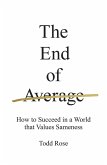The sitcom Will & Grace (1998-2006, 2017-20) shifted the media landscape and its treatment of queer themes by starring an openly gay protagonist, Will Truman, on primetime network television. Will, along with his best friend Grace Adler and their constant companions Jack McFarland and Karen Walker, engaged in many stereotypical sitcom shenanigans imbued with decidedly queer twists. Despite the series' groundbreaking nature, its accuracy and responsibility in representing gay men-and of queer culture in general-has been questioned throughout its initial run and reboot. Author Tison Pugh places the sitcom in its historical context of the late 1990s and early 2000s, considering how it contributed to contemporary debates concerning queer life. Will & Grace returned in the Trump era, offering viewers another chance to enjoy the companionship of these quirky yet relatable characters as they grappled with seismic shifts in the nation's political climate. Pugh demonstrates that while heralding a new age of queer representation, characters across the series were homogenized through upper-class whiteness to normalize queerness for a mainstream US audience. In negotiating protocols of network television and the desires of audiences both gay and straight, this trailblazing series remains simultaneously haunted by and liberated from longstanding queer stereotypes.
Dieser Download kann aus rechtlichen Gründen nur mit Rechnungsadresse in A, B, BG, CY, CZ, D, DK, EW, E, FIN, F, GR, HR, H, IRL, I, LT, L, LR, M, NL, PL, P, R, S, SLO, SK ausgeliefert werden.









